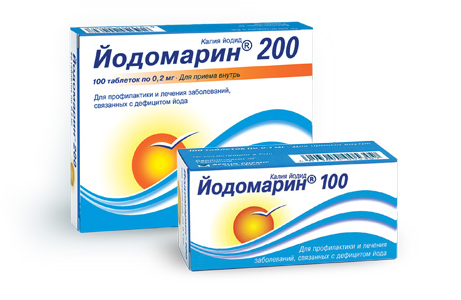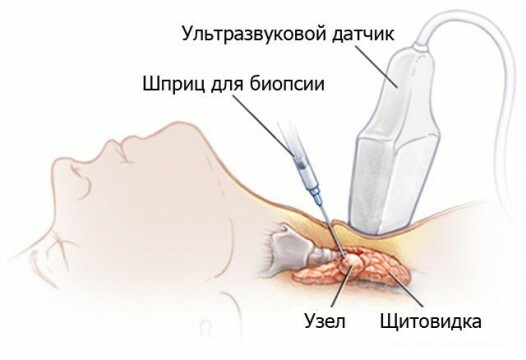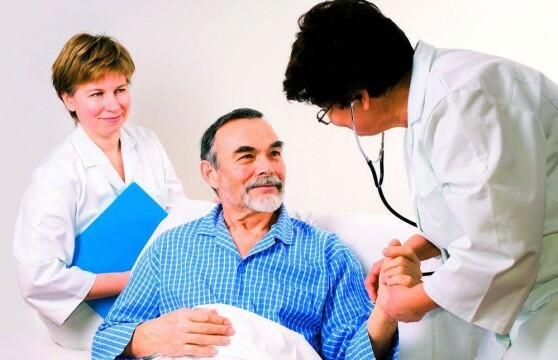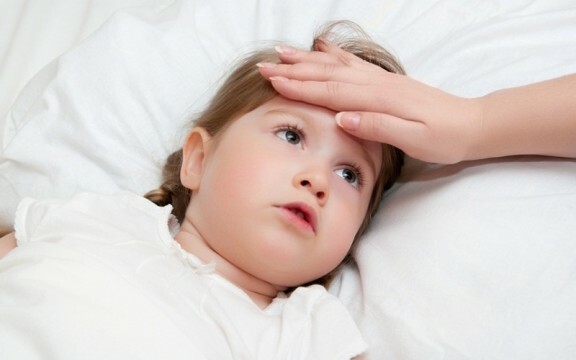Hypothyroidism is a disease of the thyroid gland, which reduces its functionality, resulting in a deficiency that is necessary for the body, hormones.
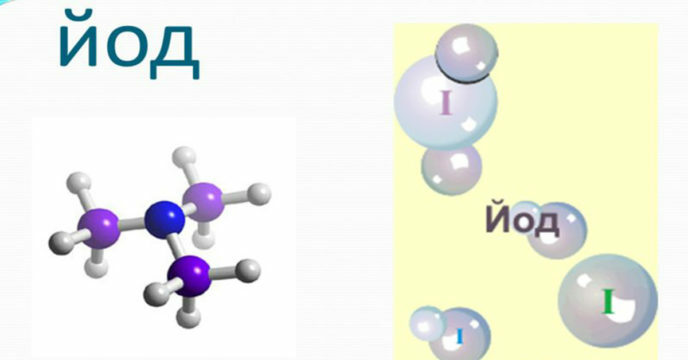
Patients with hypothyroidism, almost nothing to worry about, but their quality of life is significantly reduced due to the emergence of a state of depression. They do not please anything in life, the vital energy disappears, they do not understand and can not explain what is happening to them.
Symptoms of the disease
In addition, the disease has the following symptoms:
- body mass gain and obesity, despite moderation in food;
- a constant feeling of chilliness and a low body temperature - as a result of the slowing down of metabolic processes in the body;
- skin becomes icteric;
- there are swelling around the eyes, nasal breathing is difficult due to the swelling of the nasal mucosa, tongue prints are visible, the voice becomes hoarse;
- the person becomes sluggish, he is tormented by constant drowsiness, psychic processes( emotional reactions, thinking, speech) are slowed down;
- appears dyspnea with sudden movements and walking, in the region of the heart there are painful sensations, the number of heartbeats decreases, and it increases in size;
- hypotension occurs;
- from the digestive tract, there are violations: flatulence and constipation, narrowing of the bile ducts, possibly the appearance of gallstones, nausea;
- anemia( anemia);
- appears dryness of the skin, the hair becomes brittle and falls out, on the nails( also, brittle) appear lateral and longitudinal furrows;
- in women is disrupted by the menstrual cycle.
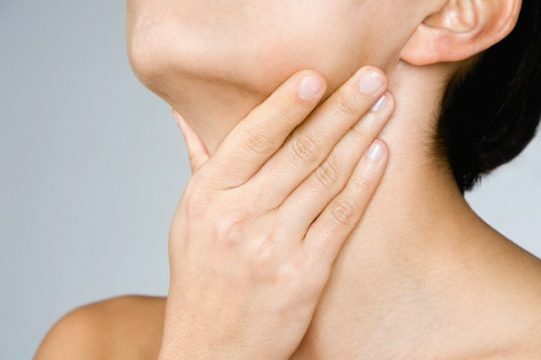
Since hypothyroidism is a deficiency of thyroid hormones, the question is: can iodine be taken with hypothyroidism or not?
Methods of treatment
Previously, in medical practice, in addition to hormone therapy, it was customary to use iodine preparations for hypothyroidism. Most often, an alcohol solution of iodine was used.
Applying an iodine solution, it was very difficult to find the right dosage, and this often led to poisoning and intoxication( iodism).When it came to the realization that this chemical element is harmful, and is a strong oxidant, then its application, in this form, was abandoned.
In modern endocrinology, they moved away from the practice of treating hypothyroidism with iodine, and the main emphasis was laid on the use of drugs that compensate for the hormonal deficiency in the body.
This change in the treatment of hypothyroidism is explained by the fact that the mineral takes part in the production of thyroid hormones. But when its functionality is broken or it ceases to function at all( the production of the hormone stops), then there is no sense in using iodine preparations, and the question whether it is possible to take it for the treatment of this disease, there is a logical answer - no.
Treatment of this disease should appoint a doctor, after studying the results of a blood test for hormones. Only after this are prescribed drugs such as: Eutiroks or Levothyroxine, in a strict dosage, which the doctor must determine.
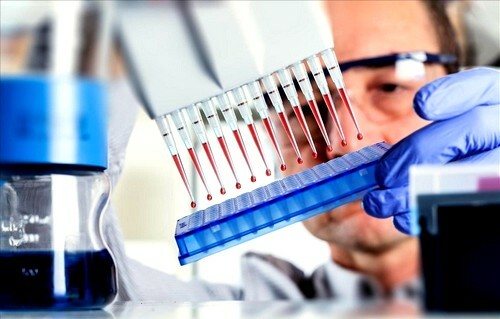
Possible exceptions in the treatment of
If the cause of hypothyroidism is a prolonged mineral deficiency, then it is possible to administer iodine-containing drugs in adequate doses, and only in a dosage form.
In other cases, this chemical element can not be used for treatment, since iron can not process it because of the loss of its function, and in most cases it does so much harm. Also, during pregnancy, the appointment of iodine preparations is not always justified.
Note - it is forbidden to apply iodine alcohol solution inside, as advised by "folk medicine" with milk, etc. This is fraught with the development of complications, both diseases of the thyroid gland, and internal organs.
Prevention
For the prevention of hypothyroidism, which can occur with iodine deficiency, it is recommended the appointment of drugs and biologically active additives, with the content of a special form of mineral:
- Iodine-active;
- Iodomarine;
- Iodinol( blue iodine);
- Iodine-active.
This drug is an organic compound of milk protein and iodine. Such a compound can be called an analogue of the natural, which the child takes with mother's milk in the first days of life. This bioadditive is unique in that, in the presence of micronutrient deficiency, it is fully absorbed by the body, and when the mineral concentration in the blood is normalized, the drug is not digested and is excreted without entering the thyroid gland.
This behavior of the drug is due to the fact that splitting of the milk protein and detachment of iodine from it, occurs only in the presence of a specific enzyme produced by the liver, with a lack of mineral.
When the microelement in the body is sufficient, the formation of the enzyme does not occur, and the bioadditive is not digested, after which it is removed from the body naturally.
Iodomarin
In this preparation, potassium iodide acts as an active ingredient. When a substance enters the body, it decomposes into iodine ions, which begin to interact with thyroid follicles. Under the influence of mineral ions, thyroid production takes place in the thyroid gland.
The dosage of iodomarin is selected by the doctor, based on the results of the tests. Iodomarin is prescribed even to children under 12 years old. For babies, the product dissolves in breast milk or milk formula.
Iodinol( blue iodine)
Iodinol is the same blue iodine that you can prepare yourself. Its difference from a solution made by one's own hands is that polyvinyl alcohol is paired with a mineral in its manufacture, while starch is used for a solution made by one's own hands.
Thus, a high-molecular compound with antiseptic properties is obtained, and unlike a pure chemical element, it is not toxic.
In addition to external application of this drug, it can be consumed inside, to fill the deficiency of this important trace element. As in other cases, you can not independently prescribe the dosage of a solution, without consulting a doctor.
Foods with a high iodine content
The most basic source of this chemical element's ingestion into the human body is food. In the first place, in terms of iodine content, there are seafood: mussels, squid, fish, crab, shrimp, kelp( seaweed).
Most of this mineral is stored in fish that are not thermally treated( salted or dried), since during cooking, 65% of this substance is destroyed.
It should also be remembered that if in the area of your residence, in the soil there is little iodine, then in the products it will be missed.
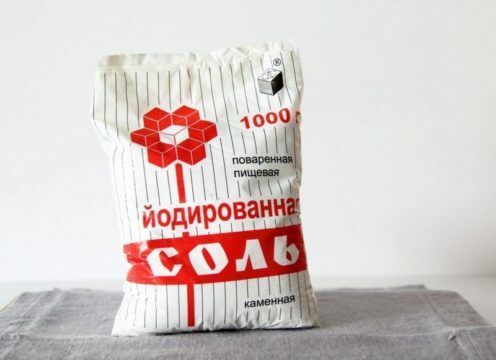
With mineral deficiency in the body, as well as for the prevention of deficiency, iodized salt can be consumed. It can be kept in a salt shaker on the table, and if necessary, add salt to the dishes. But, do not forget that iodine volatile substance, and salt in 3-4 months from enriched turns into the usual. Therefore, when buying such salt, you should pay attention to the date of its production.
What not to do?
It is very important to remember that iodine is a very strong oxidant, and its damaging effect can be resisted only by the skin and outer mucous membranes. The remaining cells in the human body under the action of this substance are damaged, turning into insoluble compounds, after which their recovery becomes impossible. As a result, cells die, and necrosis sets in.
For this reason, you can not:
- take inside alcohol solution, as many recommend to drink it with milk, etc. Application of 2-3 g iodine( 30 ml solution), for a person can end with a lethal outcome, and in a smaller amount - with serious poisoning, with burns of the mucous GIT.Less dangerous is Lugol's solution, which is used to rinse with ENT diseases. Also, it is drunk with iodine deficiency, but under strict medical supervision;
- take iodine preparations, with allergies to this chemical element. In addition to the body's reaction to the mineral, in the form of urticaria, it can cause severe consequences: difficulty breathing( suffocation, especially among asthmatics), Quincke's edema and anaphylactic shock, which can lead to human death.
Therefore, because hypothyroidism is a serious hormonal disease, without the help of a doctor - is indispensable. Even at an initial stage of this illness, it is not recommended to resort to self-treatment and to start to accept preparations or products with the maintenance of an iodine. Without clarifying the cause that caused the hormonal failure, this mineral can not be taken, as this can only aggravate the development of the disease.

